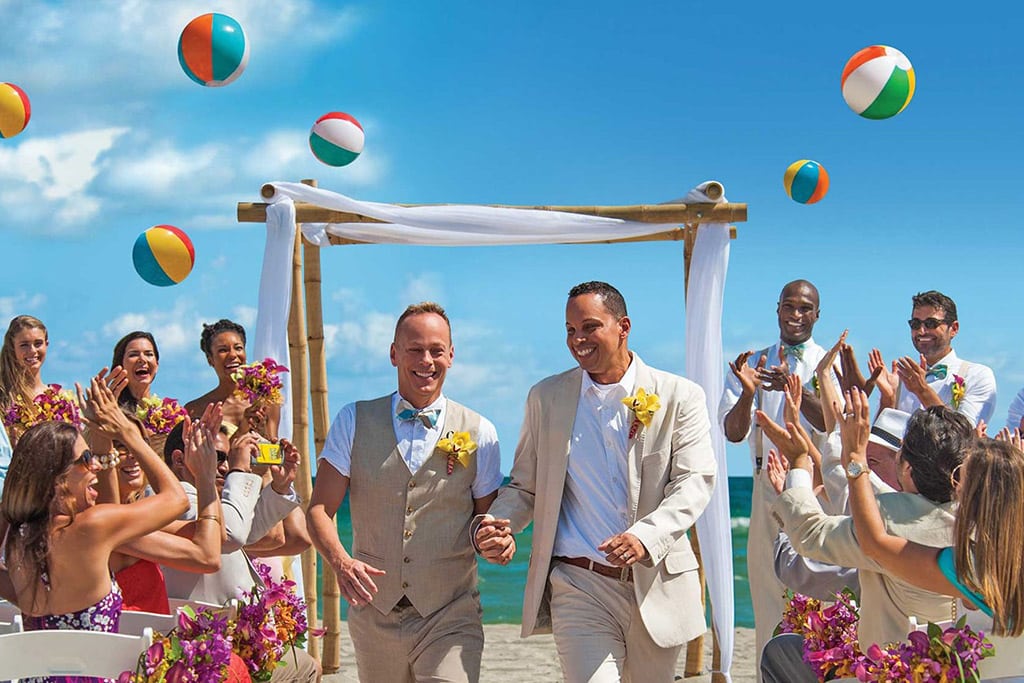Skift Take
Many U.S. destinations have teams in places like China and Brazil working to attract those visitors so why can't they have an LGBT marketing staff member?
Although the Greater Fort Lauderdale Convention & Visitors Bureau began a marketing campaign aimed at LGBT travelers in 1996, it took them five more years before they used the word “gay” in any materials.
The CVB called it their “rainbow” campaign, in the hope that it wouldn’t deter those opposed to all things gay from visiting, while still attracting the eyeballs of LGBT travelers looking for a sunny getaway — and smart enough to read between the lines. Following the tourism downturn in 2001, Fort Lauderdale embraced the term after noticing LGBT travel remained steady.
Nearly two decades after that campaign launched, it’s become clear that destinations which aren’t bold in their efforts to reach this traveler segment are often viewed as unenlightened and out of touch. The LGBT community is now embraced, celebrated, and marketed to, evidenced by travel brands’ reactions to the U.S. Supreme Court’s landmark ruling last week that legalized same-sex marriage in all 50 states. Smart brands also realize this traveler demographic is wealthier than their straight counterparts and destinations want a piece of that.
Last year the 1.5 million LGBT travelers who visited Fort Lauderdale spent $1.5 billion compared to the city’s overall 14.3 million travelers who spent $11.4 billion. The CVB also commissioned a transgender travel study last year, a first for a tourism organization, to explore what offerings and comforts transgender travelers look for when planning travel. Some 62% of the 700 transgender-identified respondents said they travel on their own and prefer medium-sized hotels where they blend in more easily.
“We’ve always been ahead of the curve and thinking about transgender travelers is generally still new that many destinations haven’t thought about yet, let alone thinking about all LGBT travelers,” said Richard Gray, the CVB’s LGBT managing director.
Being Authentic and Realistic
Gray maintains some destinations actively marketing to LGBT travelers aren’t doing so authentically and that travelers know the difference.
“Ad agencies aren’t doing the best job with LGBT marketing, in your ads you need to show two men or two women who are actually gay,” said Gray. “Don’t make shortcuts and have an open photo shoot so you can choose the right talent.”
Issues with ad agencies and LGBT marketing may stem from staff rosters of destination marketing organizations typically lacking a position dedicated to targeting that community.
“I’m not aware of any other destination that has an LGBT managing director or a position exclusively dedicated to LGBT marketing,” said Gray. “We’re lucky enough to have the support from our president/CEO and that’s something you need to have for a position like mine.”
Gray points out Visit Florida, which he regularly works with, doesn’t have a dedicated LGBT marketing plan, and John Tanzella, president and CEO of the International Gay and Lesbian Travel Association, adds BrandUSA also lacks such a plan. Neither Visit Florida or BrandUSA responded to Skift’s request for comment.
A quick scan of many U.S. and international destinations historically known as gay tourism hubs returns one common theme: beaches and sunshine.
“The LGBT community has always been drawn to beach destinations as have straight travelers,” said Gray. “Not every destination is a fit for LGBT travelers even if you might want it to be. You really have to think ‘how big do you want to do it’ if you’re thinking of starting your LGBT marketing efforts. Don’t focus on a niche within a niche. The biggest growth for us has been with LGBT families and our recent Love Is Love initiative focused on marriage and wedding tourism.”
Tanzella said in the past his organization’s site traffic spiked for searches related to each country that announced it legalized same-sex marriage.
The Daily Newsletter
Our daily coverage of the global travel industry. Written by editors and analysts from across Skift’s brands.
Have a confidential tip for Skift? Get in touch
Tags: fort lauderdale, lgbt
Photo credit: A promotional image from Greater Fort Lauderdale Convention & Visitors Bureau's "Love is Love" campaign. Greater Fort Lauderdale Convention & Visitors Bureau
